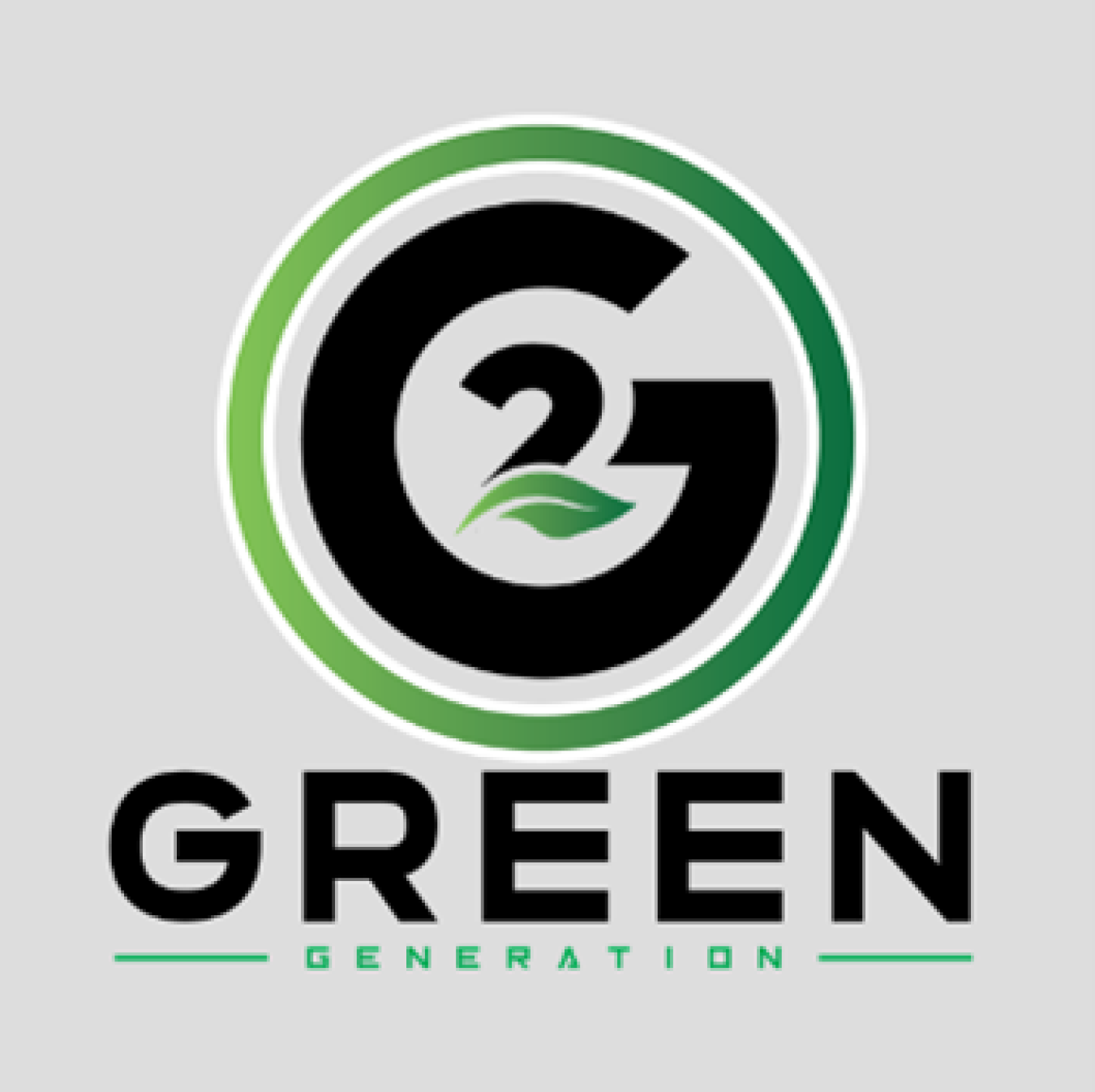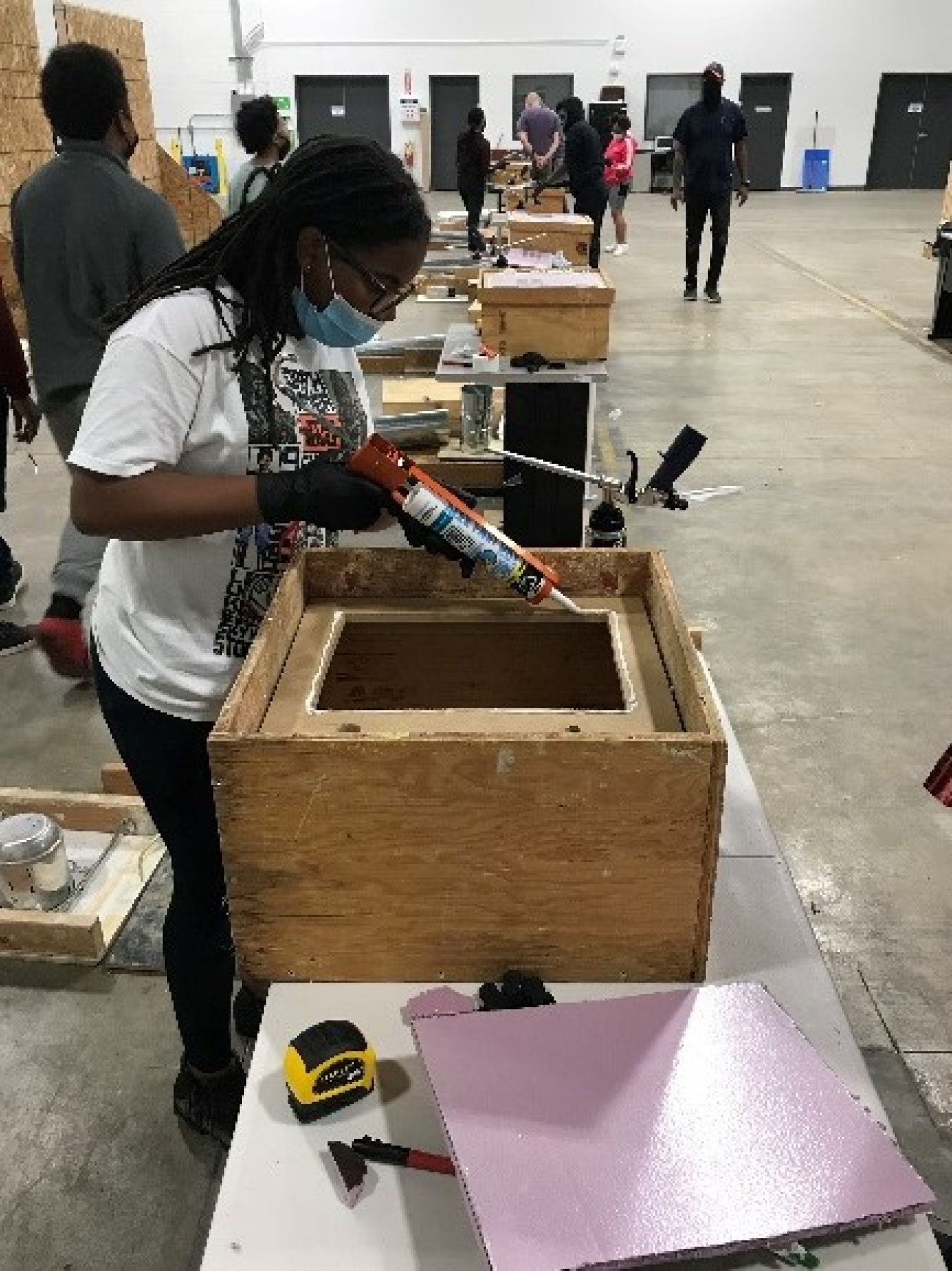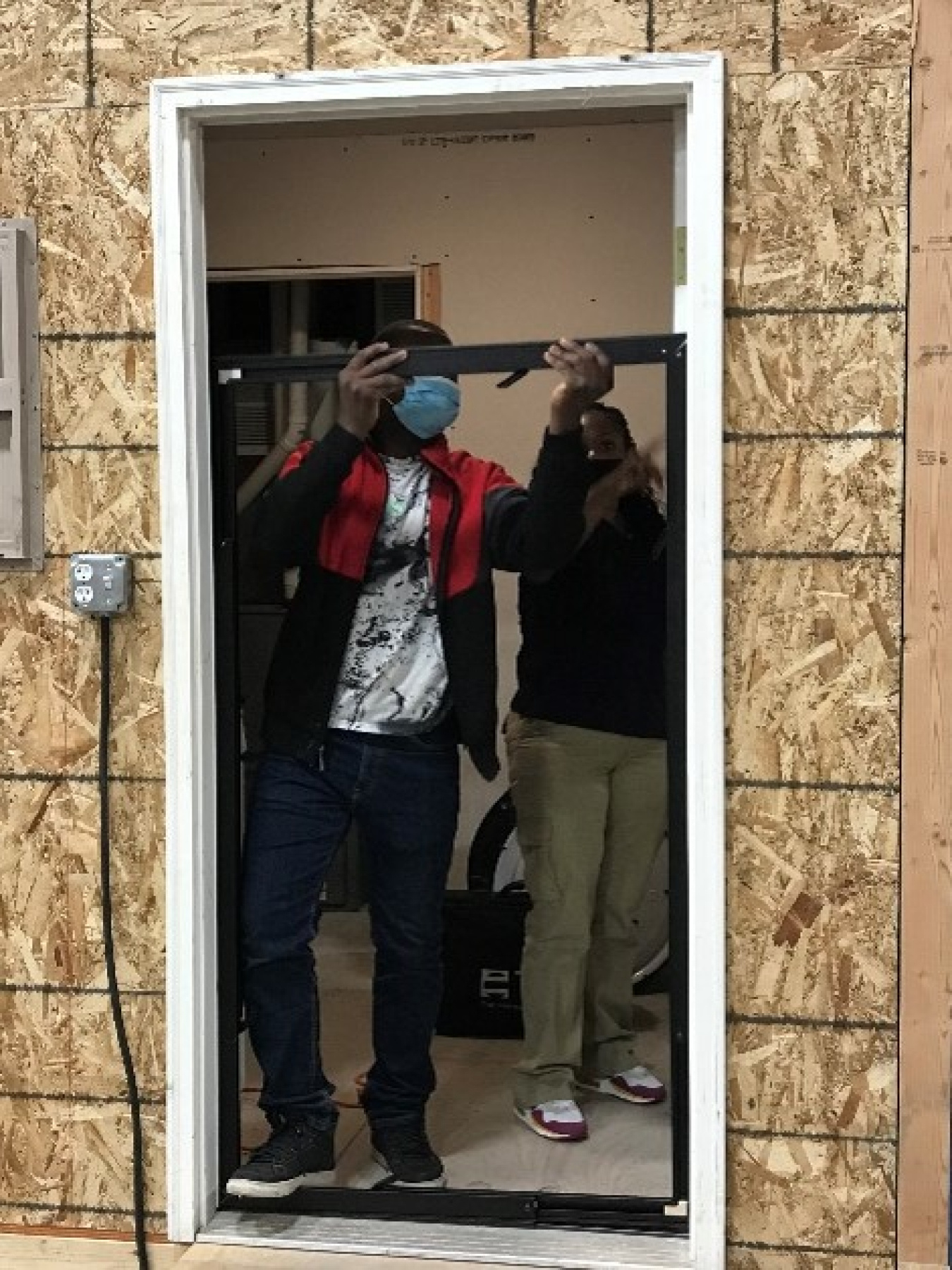A clean energy future requires a robust clean energy workforce. By creating millions of good-paying, high-quality clean energy jobs available to Americans of all ages, backgrounds, and walks of life, we can achieve the Biden Administration's bold target of net-zero emissions economy-wide by 2050.
This is a win-win for our country, and the U.S. Department of Energy's (DOE) Office of Energy Efficiency and Renewable Energy (EERE) plays a key role in building this future. EERE provides vital funding and project expertise to organizations working on the ground throughout the country—from state and local governments to nonprofits and others.

The Green Generation (G2) youth sustainability workforce development program is an example of the innovative work from state and local partners. The G2 program was piloted in the South Side suburbs of Chicago, Illinois, and provides transformative experiences to youth through immersive training on leadership, advocacy, and technical aspects of home energy performance and urban sustainability. This training offers early exposure and engagement to emerging markets for students from under-resourced communities.
The program was initially designed by Urban Efficiency Group, a minority-owned sustainability firm located in Chicago, Illinois, and further developed through a partnership with the Community Economic Development Association of Cook County, and the University of Illinois' Indoor Climate Research & Training group, an Interstate Renewable Energy Council-accredited training center, and Urban Efficiency, LLC, a minority-owned home energy performance firm and Building Performance Institute (BPI)-certified trainer. This partnership leveraged funding and expertise from the Community Services Block Grant and DOE's Weatherization Assistance Program to develop and implement the program.
In the summer of 2021, G2 launched with its first cohort of 10 rising high school sophomores in south Chicago. The students completed a rigorous set of courses focused on technical, life, sustainability, advocacy, and leadership skills over the summer months and, by the end of the summer, became the youngest in the country to hold certifications for Infiltration/Duct Leakage and Air Leakage Control Installer from BPI.
These certifications provide an essential foundation and entry point to the home energy performance industry. Cook County Board President Toni Preckwinkle also designated the G2 Sustainability Youth Council as the official sustainability youth council for Cook County, which empowers students to present local problems and suggested solutions engineered by the innovative idealism of G2 students to county departments and elected officials.

The journey does not stop there for the inaugural cohort, as the program continues with additional training, certifications, and bridging activities throughout their high school experience. During the school year, students will engage in multiple activities, including service-learning and civic-engagement challenges, community internships, advocacy training, sustainability implementation opportunities, and local conferences and networking events. The students will also continue their coursework over the next two summers of their high school careers.
Those who complete the program will have the opportunity to obtain up to six BPI certifications and will be well-positioned to make more informed college and career choices, including, but not limited to, home performance career options. Immersive, long-term engagement is the key ingredient that makes G2 both unique and effective.
The broad goals of this program also make it a model for developing young leaders and well-rounded, community-focused adults that can ensure the sustainable future of some of the most vulnerable communities for years to come. The end goal for participants is not just to get certifications and a job. While technical skills are key for building sustainable clean energy careers, G2 focuses on leadership and life skills as equal priorities. Courses on sustainability advocacy and personal empowerment are just as important for the success of the participants as courses on completing energy efficiency retrofits. The coupling of these skills instills a comprehensive set of mental and physical capabilities to prepare young adults for a successful future.

The first summer of G2 was a resounding success.
"I'm overwhelmed by the unconditional commitment these emerging leaders have displayed to the G2 leadership and to themselves," said John Pady, chief expansion officer for the Community and Economic Development Association of Cook County, Inc., noting that their support for each other is "unparalleled to anything I have experienced in my professional career."
Darnell Johnson, president of Urban Efficiency Group, spoke to the connection and commitment of these students to their communities, noting, "Their ability to understand the weight of the present plight of their respective communities and meet the moment with emerging concepts to improve the future forecast of sustainability exudes diversity of thought."
Program leaders are excited about the future of this first cohort and hope to replicate their success with a new cohort next summer.
"These kids have been amazing. They have far exceeded the high expectations I had for them. They have done strategic planning. They have shown that they can be leaders," said Paul Francisco, director of the Indoor Climate Research & Training group, which is part of the Applied Research Institute at the University of Illinois at Urbana-Champaign.
DOE looks forward to supporting similar programs and partnerships in the future to advance its priorities of decarbonizing the building sector, developing workforce training opportunities for the clean energy workforce, and advancing environmental and economic justice for historically marginalized and disadvantaged communities.
